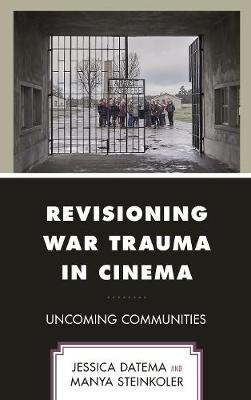Psychoanalytic Studies: Clinical, Social, and Cultural Conte
1 total work
Revisioning War Trauma in Cinema: Uncoming Communities uses philosophy and critical theory to examine films that participate in debates concerning trauma and representation. Our book reflects upon films that invent, rather than represent the moment history breaks down. It proposes a 21st century way forward across problems of trauma, inheritance, and representation into exceptional communities of artistic invention.
Revisioning War Trauma involves a confrontation with death and the hole that trauma exposes. We build our subtitle from a play on words, namely the "un-coming" as a resistance to jouissance and as a limit to cultural demands. Uncoming also refers to the traumatic departure of figures in the films from their homes and their symbolic places. As always already in the process of departure, characters in the films our book discusses embody the hemorrhaging of imaginary belonging that nationhood compels.
The book uses psychoanalytic theory as a framework and a robust language that allows us to speak about what evades sense. Our book also engages with other post-modern theories of disaster and politics to examine how trauma might serve as an opportunity to foreground an aesthetics and politics of difference. Each chapter is a close reading of a film that critically examines a cinematic screen that allows for the emergence of what history fails to transmit.
Revisioning War Trauma involves a confrontation with death and the hole that trauma exposes. We build our subtitle from a play on words, namely the "un-coming" as a resistance to jouissance and as a limit to cultural demands. Uncoming also refers to the traumatic departure of figures in the films from their homes and their symbolic places. As always already in the process of departure, characters in the films our book discusses embody the hemorrhaging of imaginary belonging that nationhood compels.
The book uses psychoanalytic theory as a framework and a robust language that allows us to speak about what evades sense. Our book also engages with other post-modern theories of disaster and politics to examine how trauma might serve as an opportunity to foreground an aesthetics and politics of difference. Each chapter is a close reading of a film that critically examines a cinematic screen that allows for the emergence of what history fails to transmit.
